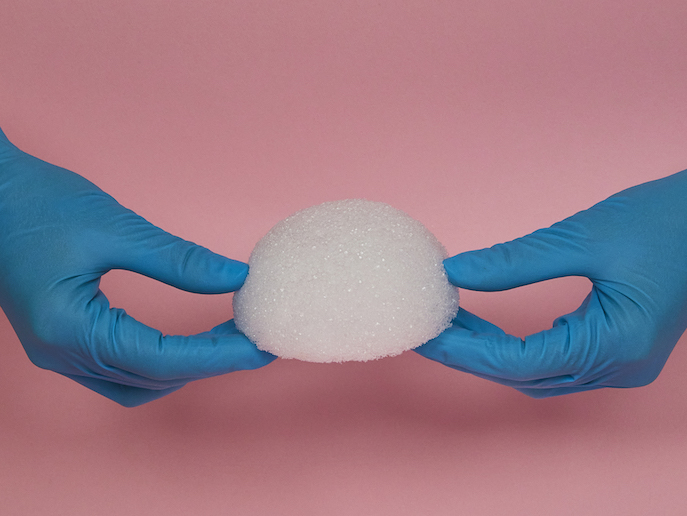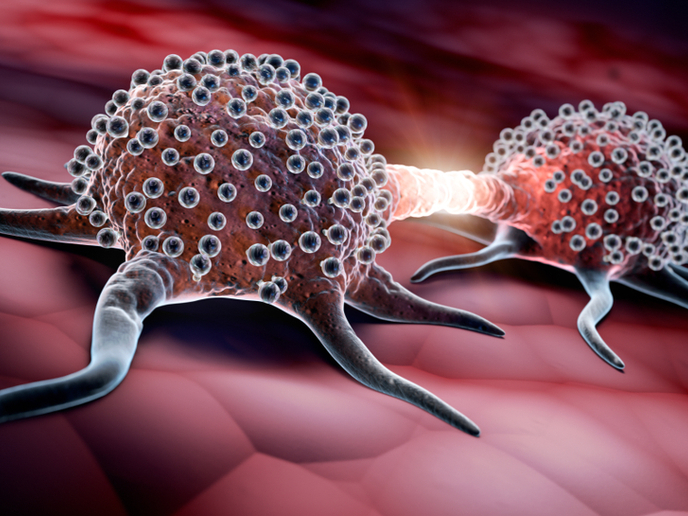A natural alternative to silicone breast implants
Nearly 3 million women undergo breast surgery every year – at least a third of which involves reconstructive surgery following a mastectomy or lumpectomy. The vast majority of these surgeries use silicone implants, medical devices that have a number of associated risks. “Silicone implants can rupture, leak, and even cause a type of cancer of the immune system,” says Margherita Tamplenizza, chief quality assurance and regulatory officer at Tensive(opens in new window). “They also need to be replaced every 5 to 15 years, which requires that the patient undergo further surgeries.” Tensive is a medical technology company developing new solutions for reconstructive surgery. One of those solutions is an innovative, bioresorbable breast implant that aims to provide natural breast reconstruction after a lumpectomy. Called REGENERA(opens in new window), the device is a breast prosthesis that degrades over time. As the implant degrades, it is slowly replaced by the patient’s natural soft tissue, eventually restoring the natural breast. “Our ultimate goal is to disrupt the multibillion-euro breast implant market by offering a safe and natural alternative to the traditional silicone implant,” adds Tensive chief financial officer Valentina Morigi.
From laboratory to hospital
According to the company’s chief technical officer Irini Gerges, REGENERA’s secret is its unique structure and composition, which supports vascularisation and tissue ingrowth. “Unlike silicone implants and fat grafting, our solution offers a safe, customisable, single-surgery option for breast reconstruction,” she explains. “REGENERA aims to drastically reduce pain, costs and stress.” With the support of EU funding, Tensive successfully conducted the first-in-human trial of REGENERA. It also cleared the regulatory paths to obtaining its CE mark as per the new Medical Device Regulation(opens in new window) and obtained an ISO 13485 certification for the device’s design, development and manufacturing. “Thanks to the support of EU funding, we are now closer to bringing our technology from laboratory to hospital,” remarks Tensive chief strategy officer Alessandro Tocchio. “In doing so, we will help surgeons to improve the quality of life of breast cancer(opens in new window) survivors.” The Tensive team is now working on a clinical trial that is pivotal to obtaining regulatory approvals and commercialising REGENERA in both the EU and the United States. They are also leveraging the technology developed during this EU project to expand its product line into such markets as breast augmentation, oncological radiotherapy and drug delivery.
Building brand awareness
In addition to testing, Tensive leveraged the EU funding to help build awareness about REGENERA amongst surgeons, payors, patient organisations, end users and other relevant stakeholders. For example, many of the project’s results were published in internationally recognised peer-reviewed journals(opens in new window) and presented at various global events. Tensive also conducted a survey to assess user needs and is developing its go-to-market and pricing strategies. Furthermore, the team signed agreements with local medical device distributors in advance of the product’s commercialisation. Proper patents have also been secured. “By creating an ecosystem of support, we were able to raise enough funds from private investors to take our solution to the next level,” concludes Tensive CEO Federico Martello.







